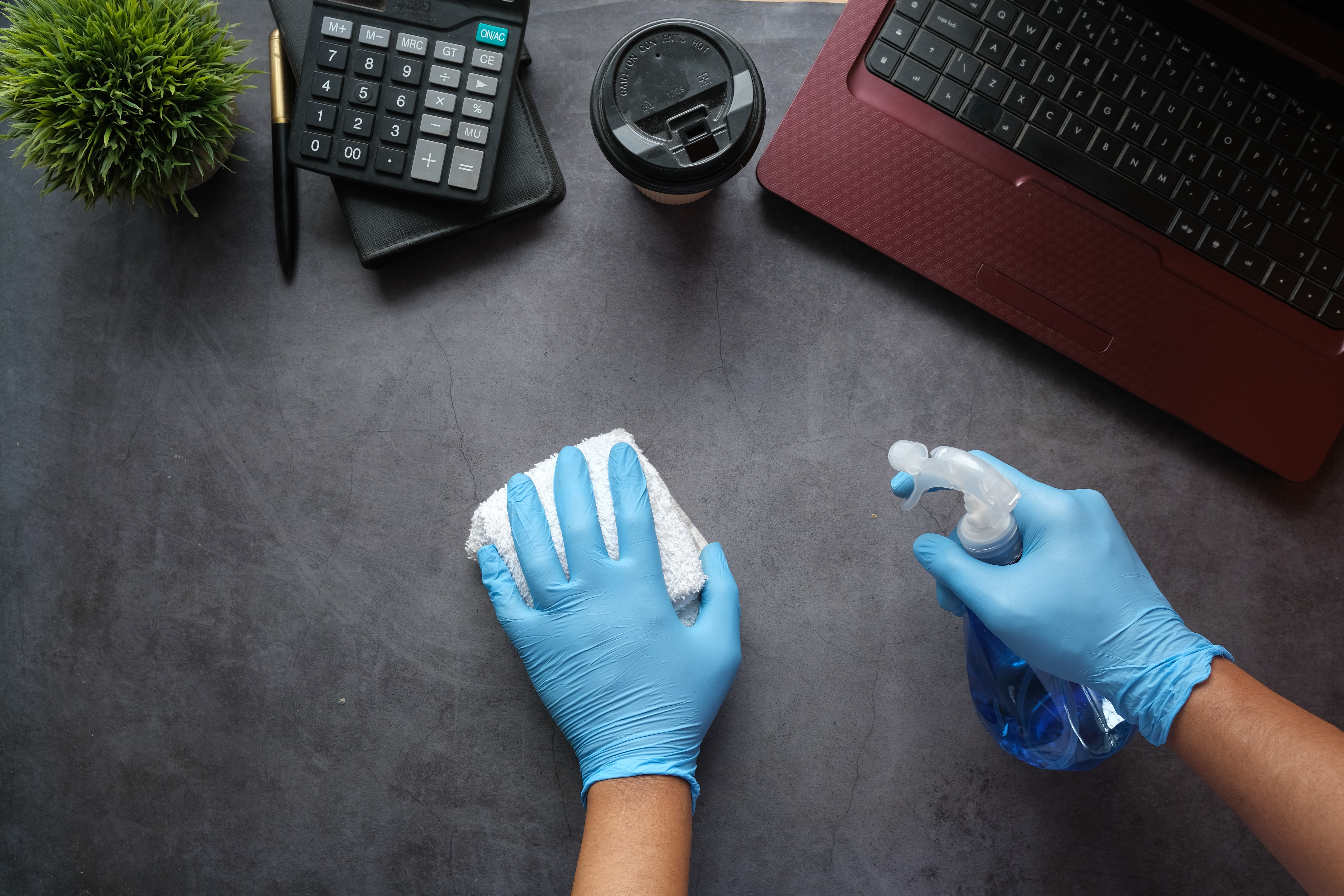Disinfection has to be a critical part of all commercial cleaning services. There are different cleaning plans to follow, but you need to follow the disinfecting best practices for cleanrooms that ISSA has shared. Cleaning for health is a critical part of every professional janitorial service, and the ISSA published a recent article discussing disinfection and what this entails. What do you need to know?
What Is Airborne Will Eventually Fall
According to information published by the ISSA, what is airborne will eventually fall. What this means is that if there are pathogens in the air, they will ultimately fall, landing on your horizontal surfaces. Then, they will stay there until they have been effectively cleaned. That is why you need to follow all cleaning best practices to remove soils and pathogens.
Even though many people believe that the proper approach is to clean as much as possible, that is not necessarily the case. Keep in mind that many cleaning chemicals used to remove pathogens can also be caustic to humans and animals. If you use them too much, your indoor air quality could suffer, and you could breed microbial resistance. Furthermore, continuous exposure to cleaning solutions can cause your equipment to degrade.
As a result, it is important to consider when it is appropriate to use disinfection best practices and when it is not. From time to time, you certainly need to follow disinfection protocol, particularly if you believe there has been an outbreak of pathogens; however, this is not something you should constantly do.
Choosing the Best Disinfectant
Next, it is important to carefully consider which disinfectant to use. There are several important factors to consider, including:
- Targeted Microbe: What are you trying to kill? What sort of pathogen do you think is present? For example, some cleaning solutions might work better on bacteria, while others might work better on viruses. Think carefully about the cleaning solution you use, and ensure it will kill whatever you are targeting.
- The Nature of the Surface: You also need to consider the nature of the surface you are trying to clean. Where is it located? How hard is it going to be to access? Do you need a cleaning solution that will stick to the surface for a while? Think about where the surface is located and what it has been made out of. You need a cleaning solution that will thoroughly clean the entire surface. For example, if you are cleaning a metal fixture, you want to use something that will not corrode the surface. If you are cleaning a wood surface, you don't want something that will promote wood rot.
- The Industry in Which You Work: You should also consider the industry in which you work. If you are cleaning a countertop in a cleanroom, you will probably use a different cleaning solution compared to a cleaning solution you might use to clean the doorknob in an office building.
- Potential Side Effects: You should also consider the cleaning solution's possible side effects. Is it safe for it to come in direct contact with your skin? Do you need to wear a respirator when you use it? Is it going to do damage to your respiratory system? You need to think about the impact of that disinfectant on your health.
If you think about these factors carefully, you should be able to choose the right cleaning solution to meet your needs. Do not hesitate to reach out to an expert who can help you.
What About the Chemical Factors?
There are several chemical factors you need to think about when you analyze your disinfectant choices. They include:
- Water Quality: You need to consider the water quality you use. For example, if there is a lot of calcium and magnesium in the water, it could react with the disinfectant, leading to insoluble particles that render the cleaning solution ineffective.
- pH: You need to consider how acidic or basic your cleaning solution is. Make sure it has the proper pH to be effective.
- Dwell Time: How long does it need to be present on the surface before you can remove it? Always take a look at the dwell time before you decide to remove the cleaning solution.
- Biofilm: Is this a cleaning solution that has the ability to kill biofilm? Biofilm can be particularly difficult to remove, but some cleaning solutions can be effective.
- Dilution Ratio: Does the cleaning solution have to be diluted before you use it? Make sure you take a close look at the recipe for mixing.
Before you make a final decision, always think about the impact of your cleaning solution on your surfaces. You do not want the cleaning solution to damage your floors or carpets, and you must make sure your equipment is properly protected.
Partner with Pegasus Today
If you are looking for a professional janitorial service that provides disinfection facility cleaning services, it would be our pleasure to help you. We are Pegasus, and we provide a wide variety of professional cleaning services. We follow all of the disinfecting best practices, making sure that we handle all of your disinfection needs. We have worked with different cleanrooms across all industries, and it would be our pleasure to use our experience to help you. Contact us for an instant quote!






